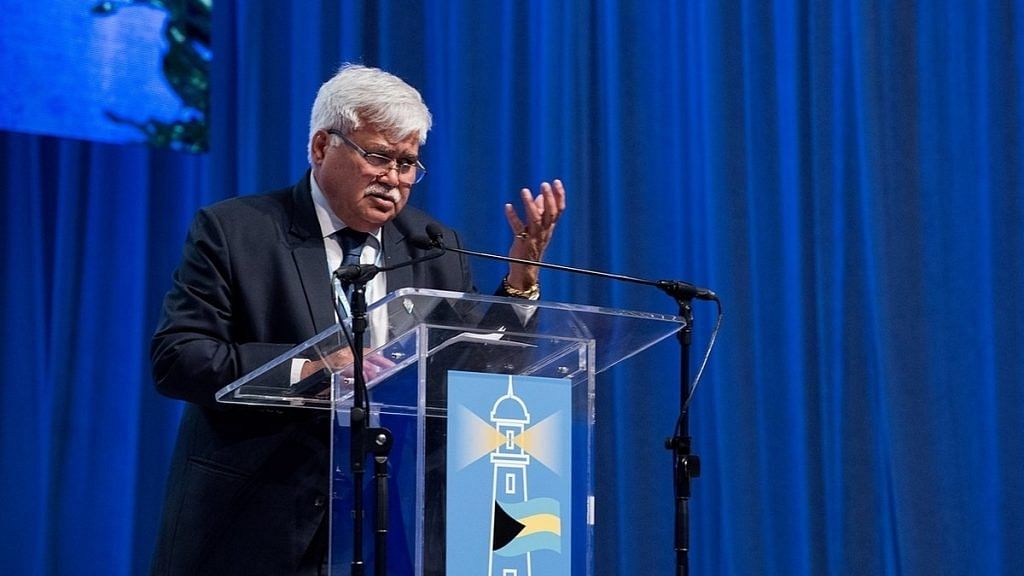New Delhi: An Aadhaar-based facial recognition system could soon replace biometric fingerprint or iris scan machines at Covid-19 vaccination centres across the country in order to avoid infections.
The Narendra Modi government is working on a pilot project to check the authenticity of facial recognition using Aadhaar data.
In an interview to ThePrint, National Health Authority CEO R.S. Sharma said the Aadhaar agency, the Unique Identification Authority of India (UIDAI), has “deployed the best facial recognition algorithms which we will be utilising now”.
“We have started a pilot in Jharkhand which is reporting more than 1,000 successful authentications via facial recognition on a daily basis at the vaccination sites,” said Sharma, who is also the chairperson of the empowered committee for the administration of Covid vaccination.
The move will make the entire vaccination process “touchless”, he said.
“Right now, the beneficiaries at the vaccination centres need to touch fingers at the machine for the biometric authentication. They also need to touch the equipment for iris authentication,” he added.
The former UIDAI chief also lauded the robustness of the technology used to build Aadhaar. “Imagine a person who generated their Aadhaar card in 2011. Even after a decade, the software is able to recognise the face. Once we do about 50,000 to 60,000 facial authentications under the pilot, we will roll it out across the country,” he added.
Also read: One-third Covid vaccination sites in Delhi govt hospitals to open 24×7
CoWIN is unique and scalable
Speaking about the Covid Vaccine Intelligence Network (Co-WIN), a portal set up to aid India’s Covid immunisation drive, Sharma said the platform can handle load of millions of registrations.
“It can take a load of 10,000 users per second. The platform can take millions and millions of registrations,” he said, adding that the platform has so far “smoothly” generated 30 lakh digital certificates on days when maximum jabs were given.
“The system has not reported any glitches since 1 March and is delivering digital certificates in local languages,” he said, labelling Co-WIN as “unique” and “scalable”.
On India’s digital certificates
Sharma also said India is closely aligning its digital certificates with international standards.
The World Health Organisation is still working on the final standards for digital vaccination certificates.
In India, digital certificates are given to vaccine recipients through CoWIN as proof of vaccination. The system is using Fast Healthcare Interoperability Resources, which is an international standard for exchanging healthcare information electronically.
“It is a digitally verifiable certificate. The QR code on the certificate is encrypted and on being checked it will show all information related to who gave the vaccine shot to the recipients, when and where it was given, which vaccine was given apart from other details,” Sharma said.
He added that these certificates may soon be required for people to travel internationally. “Also, these certificates may be used to enter buildings domestically.”
Also read: Covid mutants multiply as scientists race to decode variations
